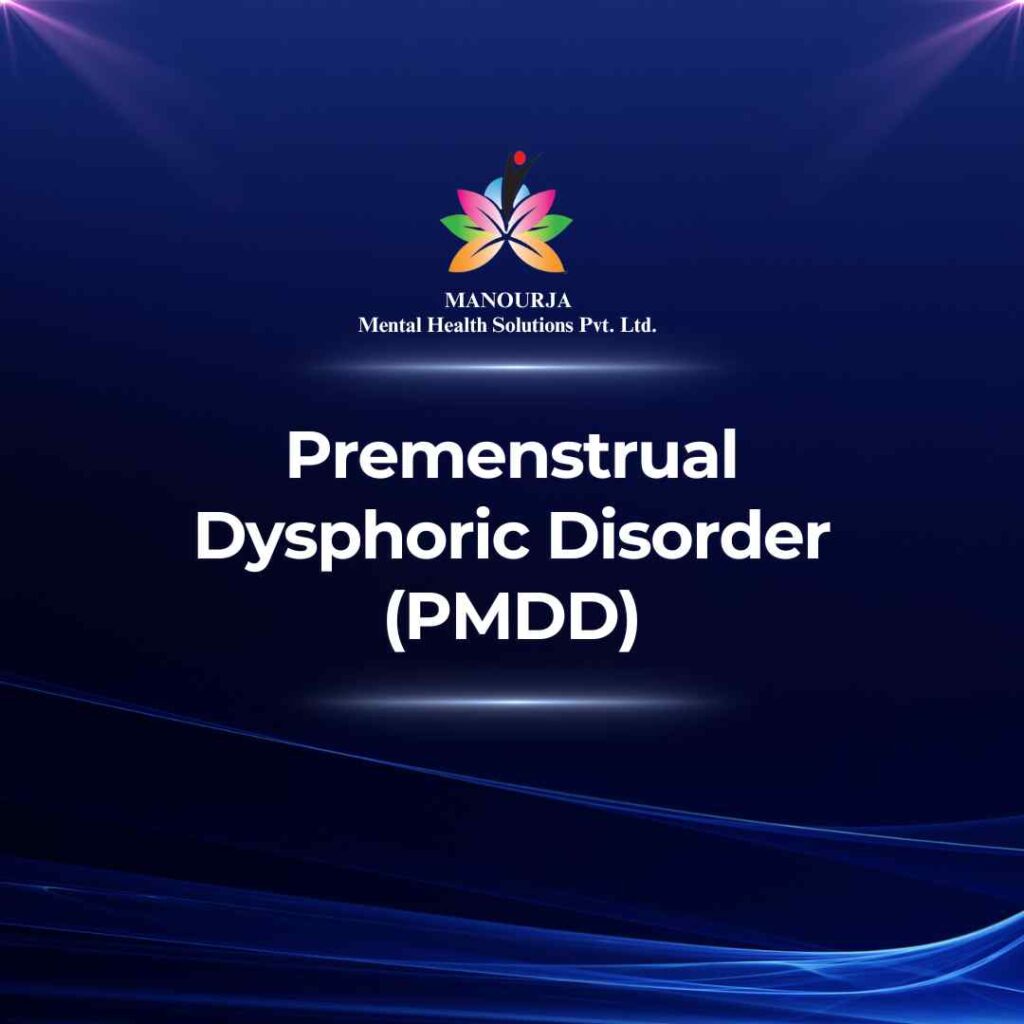Understanding Pre-menstrual Dysphoric Disorder (PMDD)

Pre-menstrual Dysphoric Disorder (PMDD) is a severe form of premenstrual syndrome (PMS) that affects a small percentage of menstruating women. Unlike PMS, which many women experience to some degree, PMDD is characterized by debilitating symptoms that can severely disrupt work, relationships, and daily activities. It involves a combination of emotional, psychological, and physical symptoms that occur during the luteal phase of a woman’s menstrual cycle and typically resolve soon after menstruation begins.
Characteristics of PMDD:
PMDD symptoms are similar to those of PMS but are more intense and debilitating. Key features include:
- Emotional and Behavioral Symptoms: Severe mood swings, feelings of sadness or despair, or even thoughts of suicide. Irritability, anger, and conflict with others are common.
- Psychological Symptoms: Anxiety, tension, and feelings of being overwhelmed or out of control.
- Physical Symptoms: Joint or muscle pain, headaches, fatigue, and sleep disturbances. Some women also experience changes in appetite and bloating.
- Impact on Daily Life: The symptoms are severe enough to cause noticeable difficulties or impairment in work, social activities, and relationships.
Forms of PMDD:
PMDD is not categorized into different types but is itself a specific, severe form of PMS. The condition follows a predictable, cyclical pattern, with symptoms emerging in the week or two before menstruation starts and generally resolving within a few days after the onset of the period.
Treatment of PMDD:
Effective management of PMDD typically involves a combination of lifestyle adjustments, medication, and counseling:
- Medication:
- Antidepressants: SSRIs (selective serotonin reuptake inhibitors), like fluoxetine, sertraline, and paroxetine, are commonly prescribed for PMDD. They can be taken continuously or just in the luteal phase of the menstrual cycle.
- Hormonal Treatments: Oral contraceptives or hormone therapy may help some women manage symptoms.
- Nonsteroidal Anti-inflammatory Drugs (NSAIDs): These can be used to relieve pain, such as headaches or back pain.
- Psychotherapy:
- Cognitive Behavioral Therapy (CBT): This can help manage negative thoughts and behaviors that contribute to the severity of PMDD symptoms.
- Counseling: Supportive counseling or stress management techniques might also be beneficial.
- Lifestyle Modifications:
- Regular Exercise: Engaging in regular physical activity can reduce symptoms.
- Dietary Changes: Eating smaller, more frequent meals, reducing caffeine and alcohol intake, and avoiding sodium may mitigate bloating and fluid retention.
- Adequate Sleep: Ensuring sufficient sleep helps manage fatigue and mood swings.
- Supplements: Some women find relief with nutritional supplements like calcium, magnesium, vitamin B6, and L-tryptophan.
Conclusion:
PMDD is a challenging condition that can impact every aspect of life for those affected. Understanding and recognizing the severity of symptoms are critical first steps in managing this disorder. With the right combination of treatments, many women find they can manage their symptoms effectively and maintain a normal quality of life. If you suspect you have PMDD, it is crucial to seek help from a healthcare provider who can offer a diagnosis and tailored treatment plan
At MANOURJA, we believe in the transformative power of counseling. Our experienced therapists offer a safe and supportive space where you can explore your thoughts, emotions, and challenges. Through personalized counselling sessions, we’ll work together to develop coping strategies, build resilience, and achieve lasting positive change. Discover the path to a healthier, happier you with MANOURJA counselling services.
MANOURJA Rehabilitation Services
At MANOURJA, we’re dedicated to helping you in rebuild your life, after difficult times. Our rehabilitation services focus on understanding what you need to move forward, whether you’re recovering from addiction, trauma, or any psychological – social challenges. We create personalized plans, that are all about helping you, regain your strength and find hope again. With a caring team by your side, you’ll have the support to make real progress and take steps toward a brighter, healthier future.
.
